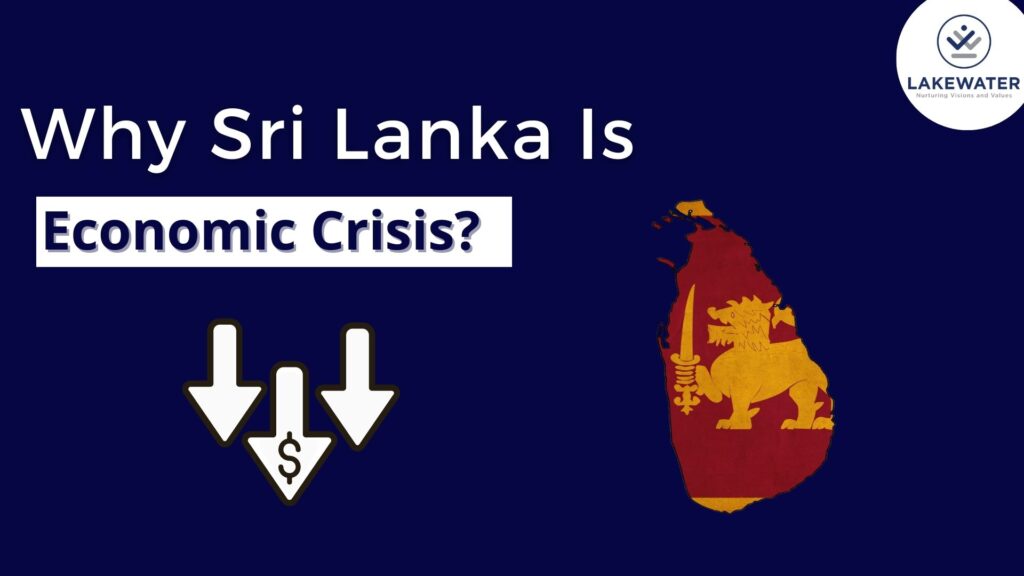𝐒𝐫𝐢 𝐋𝐚𝐧𝐤𝐚’𝐬 𝐟𝐢𝐧𝐚𝐧𝐜𝐞𝐬 𝐭𝐨𝐝𝐚𝐲: 𝐚 𝐬𝐢𝐭𝐮𝐚𝐭𝐢𝐨𝐧 𝐪𝐮𝐢𝐭𝐞 𝐠𝐥𝐨𝐛𝐚𝐥𝐥𝐲 𝐚𝐥𝐚𝐫𝐦𝐢𝐧𝐠!
> 𝑪𝒐𝒗𝒊𝒅-19 𝑷𝒂𝒏𝒅𝒆𝒎𝒊𝒄
The tourism sector, which initially helped boost the country’s GDP, had been drastically affected due to Covid-19. And to nail the grave, the war between Russia & Ukraine acted as a catalyst.
> 𝑳𝒂𝒄𝒌 𝒐𝒇 𝑭𝒐𝒓𝒆𝒊𝒈𝒏 𝑹𝒆𝒔𝒆𝒓𝒗𝒆𝒔
Sri Lanka majorly imports its essentials like sugar, fuel, pulses, et al. However due to the government’s mismanagement, there arose a shortage of foreign reserves since the cost of the resources was no more being cleared by the nation’s finance governing bodies.
> 𝑨𝒈𝒓𝒊𝒄𝒖𝒍𝒕𝒖𝒓𝒆 𝑪𝒓𝒊𝒔𝒊𝒔
Government’s decision to ban chemical fertilizers to grow organic crops has negatively affected the nation as well. Rice & sugar production for instance has consequently proven the loophole. Transforming the production of tea & other agricultural products to organic farming led to lower yields, too in the same tenure, resulting in a loss of $425 mln.
> 𝑰𝒏𝒇𝒍𝒂𝒕𝒊𝒐𝒏
Sri Lanka’s inflation is at a new all-time high of 17.5% & food inflation has hit an alarming 25%, leading to shot-up food & cereal costs. 1kg of rice, which used to cost initially around 80 Sri Lankan rupees, now costs 500 Sri Lankan rupees.
Sri Lanka is seeking a $3bln emergency loan to pay for important imports such as fuel, cereals, etc at present. The World Bank has agreed to lend $600 mln. #India has promised $1.9 bln & can lend an additional $1.5 bln to imports. The government is also seeking help from the IMF. However, the IMF said the government must raise interest rates & taxes as a condition of lending.
It will now certainly take a miracle for the nation’s resources to be re-valued back to how the scene in #SriLanka was, pre-pandemic.





As tragic as it might seem, today Sri Lanka, known for its flora & fauna, is experiencing the greatest economic crisis in its history. Intriguing, isn’t it?
According to the World Bank Organization, 5 lakh people in the country have sunk below the poverty line in contemporary times. Inflation has hit an all-time high of 17.5%. The Census & Statistics Department revealed that the country’s GDP fell by 1.5% in the Q3 of ’21.
The fiscal scene of the nation, which is highly dependent on imports of energy, food grains, & critical commodities, is left with a foreign reserve of only $2.31 bln: a threatening nightmare indeed for the government.
Here are a few antecedents that could have led to this catastrophe.
𝑮𝒐𝒗𝒆𝒓𝒏𝒎𝒆𝒏𝒕 𝑴𝒊𝒔𝒉𝒂𝒏𝒅𝒍𝒊𝒏𝒈
President Gotabaya Rajapaksa, implemented significant tax cuts that impacted government revenue & fiscal policies, causing budget deficits to skyrocket. These reductions included raising the tax-free thresholds, which resulted in a 33.5% sharp drop in the count of registered taxpayers lowering, be it corporate tax from 28% to 24%
or eliminating the PAYE tax.